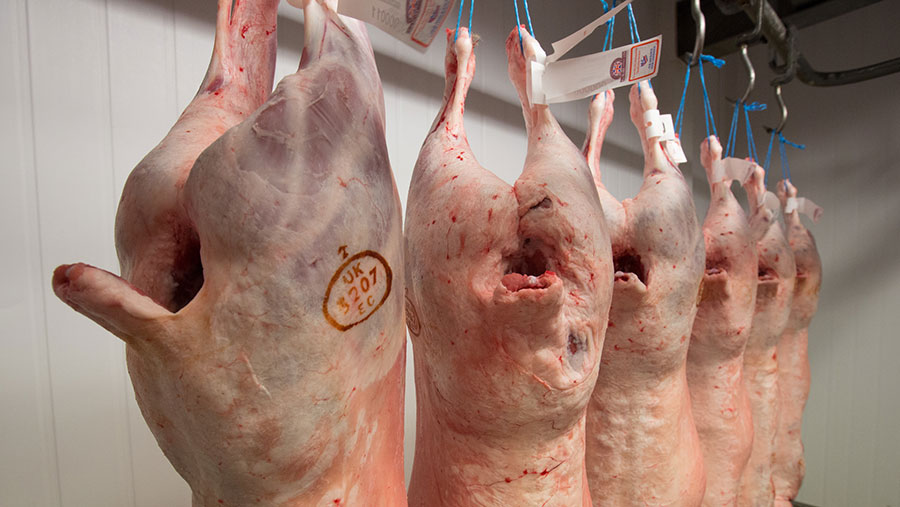Sheep classification system ‘will increase transparency’
 © Tim Scrivener
© Tim Scrivener A new, mandatory sheep carcass classification system is being proposed by Defra, which will run on similar lines to the grid systems that have existed for cattle and pigs for many years.
According to a consultation launched on Wednesday (30 May), qualified assessors working in abattoirs will use a standard grid to classify sheep and so determine how much a producer should be paid.
See also: 5 sheep crushes on test: Which handles best?
Defra farm minister George Eustice described the idea as “an important step in improving fairness for sheep farmers and ensuring they get a fair deal for their excellent produce”.
According to the consultation, there are two options – to either adopt the Europ grid system already established by the EU or, post Brexit, develop a bespoke system for England to take account of future market opportunities and needs.
“If we implement a bespoke system, we would consult again on the specifics of the system before imposing mandatory sheep carcass classification,” says the report.
Productivity
According to the consultation, greater transparency will lead to productivity improvements, as producers will better understand the classification of their animals and make the necessary adjustments.
There are about 151 abattoirs registered to slaughter sheep in England, though just 34 account for more than 90% of all throughput.
A number of these already operate voluntary carcass classification systems.
The plan is to exempt smaller abattoirs – those handling less than 1,000 sheep a week – from the requirement to operate a classification system.
Commercial abattoirs taking part would be obliged to report deadweight prices back weekly to the AHDB, which would publish the aggregated information.
The government is also considering requiring them to publish other charges, such as the cost of cleaning animals, classification charges and insurance.
Reaction
The National Sheep Association (NSA) says it welcomes the consultation. “Having a mandatory system is the only way to get everyone to act,” said NSA chief executive Phil Stocker.
“It will hopefully put an end to things like rounding down of weights or random shifts in carcass grades.”
Exempting some smaller abattoirs also made sense. “The small abattoir sector is under severe pressure, so we don’t want to add to their costs. Besides, they have a very different relationship with their suppliers.”
Livestock Auctioneers Association executive secretary Chris Dodds also supported the principle of greater transparency, adding the sheep carcass classifications should be sent back to marts, who could then feed it on to farmers.
Norman Bagley of the Association of Independent Meat Suppliers said developing a “bespoke” system for England, post Brexit, could be useful if it involved building in additional criteria, such as “eating quality” to help differentiate UK lamb from cheaper imports.
